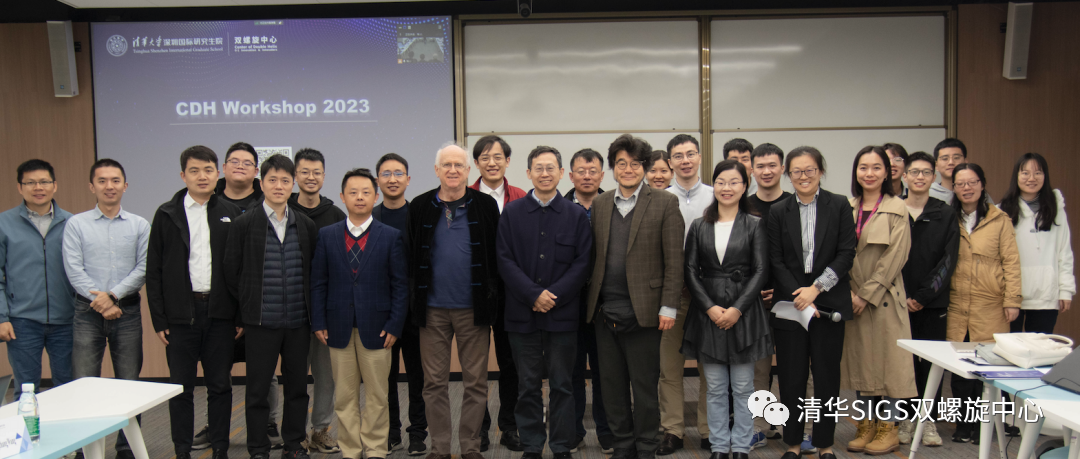
On December 19th, the Tsinghua Shenzhen International Graduate School's Center of Double Helix (CDH) successfully convened the "CDH Workshop 2023" in Room 501 of the Information Building at SIGS. The event was graced by the presence of over 30 distinguished experts and scholars from a host of prestigious institutions, including Tsinghua Shenzhen International Graduate School (SIGS), Tsinghua University, Institute of Superlubricity at Shenzhen Tsinghua Research Institute, Rice University, the University of Tokyo, the University of Hong Kong, the Shenzhen Institutes of Advanced Technology of the Chinese Academy of Sciences (SIAT), Shenzhen Polytechnic University (SUT), Southern University of Science and Technology, and East China Normal University. These thought leaders shared and deliberated on their significant contributions to interdisciplinary research and innovative education.
The seminar was inaugurated with an address by Professor Zheng Quanshui, a member of the Chinese Academy of Sciences, a faculty member at the Tsinghua SIGS Institute of Materials Research, and the founder of the Double Helix Center. In his opening remarks, Academician Zheng reflected on the realization of his decade-long vision for "scientific research and education," which has culminated in the establishment of a "Zero to One Ecology." This ecosystem integrates three core components: CDH, the Institute of Superlubricity, and the X-Institute, fostering the progression of scientific research and education from inception to fruition. He also emphasized that the ages between 14 and 40 represent a crucial period for the development of future scientists and researchers, urging young scholars to maintain an expansive outlook. Despite the challenges inherent in this journey, he expressed his hope that the workshop would serve as a platform for robust dialogue, facilitating the exploration of developmental opportunities and collaborative success.
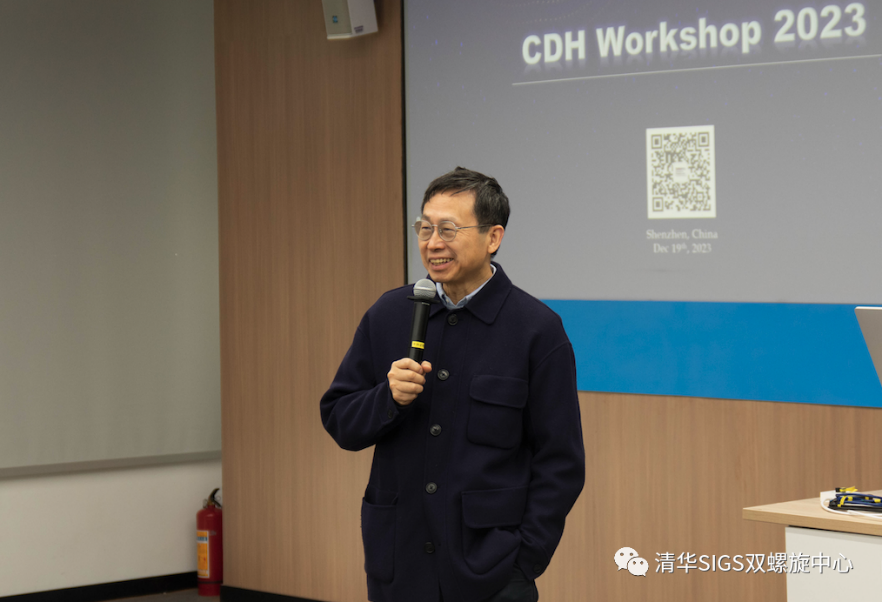
Following the opening address, Bilu Liu, the Deputy Director of the Tsinghua SIGS Institute of Materials and head of the Office of Research, alongside Kaichen Dong, the Deputy Director of the center of Double Helix, provided insightful overviews of Tsinghua SIGS and CDH, respectively. Building upon this foundation, Academician Quanshui Zheng shared the founding vision and philosophy behind the establishment of CDH, recounting the story of "The ignorant are fearless—undergraduates leading doctoral students."
Academician Zheng advocates for the significance of the "co-teacher system," which is composed of a “senior mentor - junior mentor - student” framework. He posited that while innovative ideas are often the brainchild of students, senior professors may not always have the capacity to offer in-depth guidance due to time constraints. This is where the role of junior mentors becomes pivotal, acting as a conduit between the senior mentors and the students. The CDH has strategically positioned itself to play an intermediary role, amalgamating resources from junior mentors and establishing a comprehensive “accompanying mentor system” to enhance the educational and research experience
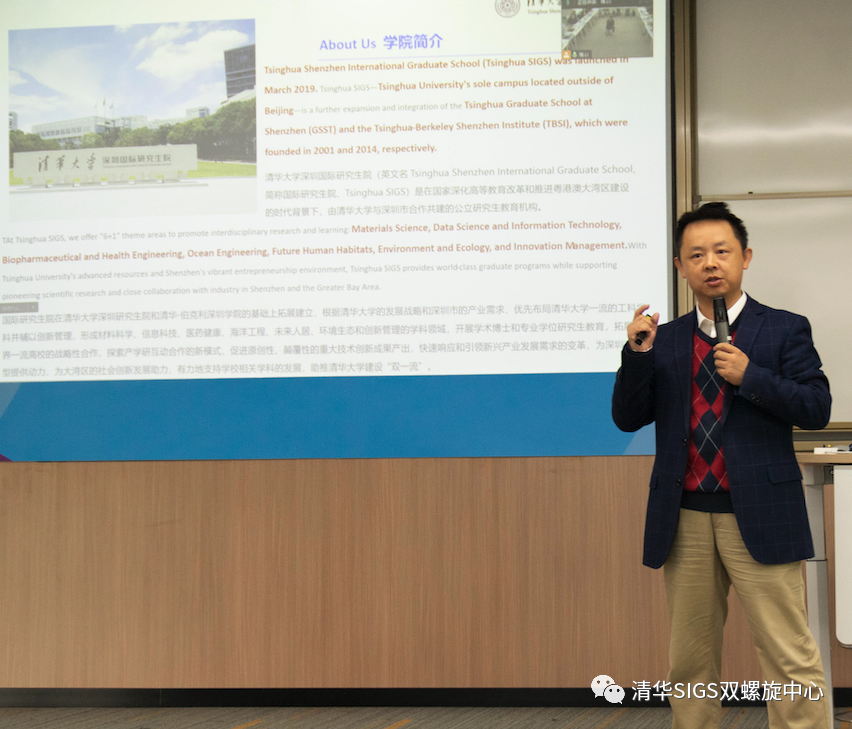
During the keynote session of the workshop, a series of keynote presentations were delivered by esteemed academics, including Professor Yang Lu from the University of Hong Kong, Associate Professor Qinghong Yuan from East China Normal University, Assistant Professor Feng Yang from Southern University of Science and Technology, and Deputy Director Deli Peng from the Institute of Superlubricity. Additionally, presentations were made by Jingwei Wang from Tsinghua SIGS and CDH Core PIs, Assistant Professors Kaichen Dong, Yu Lei, and Hongzhang Wang.
The session was enriched by the participation of Academician Quanshui Zheng, Professor Boris Yakobson from Rice University, and Professor Shigeo Maruyama from the University of Tokyo, among other scholars. They engaged in in-depth discussions on technical challenges, research findings, and the potential applications of their work. Together, they explored the scientific principles that transcend various disciplines, their practical implementations, and the methodologies for specific collaborative endeavors.
The session was adeptly chaired by Professor Feng Ding from Shenzhen University of Technology and Professor Bilu Liu from Tsinghua SIGS, who facilitated the exchange of knowledge and fostered a collaborative atmosphere among the participants.
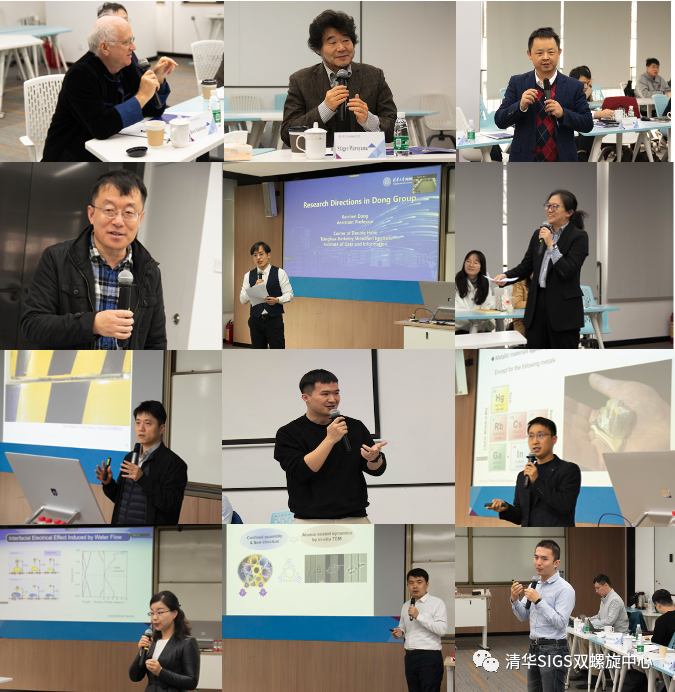
The seminar proceeded with a "Panel Discussion of CDH," presided over by Assistant Professor Lei Yu, who serves as the Deputy Director of CDH. The discussion was segmented into two primary themes.
The initial theme focused on “education,” addressing pivotal questions pertinent to the development of young PIs. The discourse revolved around best practices for becoming an effective educator, strategies to expedite interdisciplinary research, and the support mechanisms within CDH that can facilitate the growth and maturation of young PIs.
Subsequently, the conversation transitioned to the theme of "innovation." This segment explored the criteria for becoming a competent PI and delved into the ways in which CDH can not only nurture the growth of young PIs but also ensure their rapid progression within this institution. These discussions aimed to identify actionable insights and foster an environment conducive to the professional advancement of emerging researchers within the CDH framework.
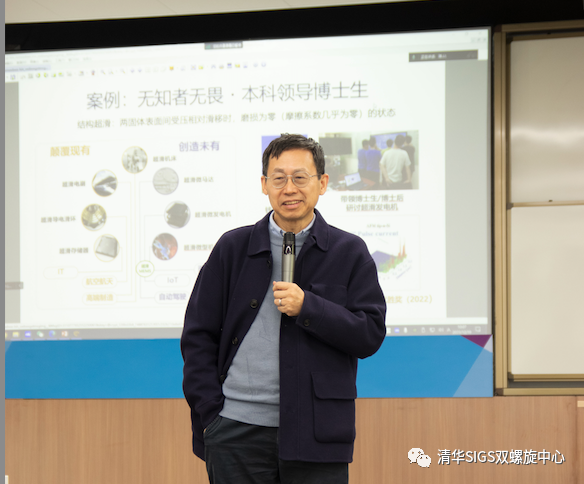
Academician Zheng Quanshui remarked on the youthful and dynamic nature of CDH, noting its broad spectrum of research areas. He expressed optimism that the presence of exceptional and innovative students at CDH would serve as a magnet for more professors to become involved with the platform, whether as core PIs or affiliate PIs. He also highlighted that the international stature of Tsinghua SIGS would be further enhanced by those professors who did participate.
To illustrate the potential impact of such student excellence, he cited the example of Tsinghua University's "Tsing Excellence Class," which admits around 30 students annually. Approximately 10 of these outstanding students are given the opportunity to engage in study and research exchanges at the laboratories of professors at institutions like MIT and Harvard University. Due to the impressive performance of these students, an increasing number of MIT professors have become engaged with the program. As a result, the scope of mentorship within the project has broadened from mechanical engineering to encompass materials science, civil engineering, physics, and other disciplines, with even more professors expressing interest in joining. This example underscores the virtuous cycle of attracting high-caliber talent and the subsequent expansion of academic collaboration and mentorship opportunities.
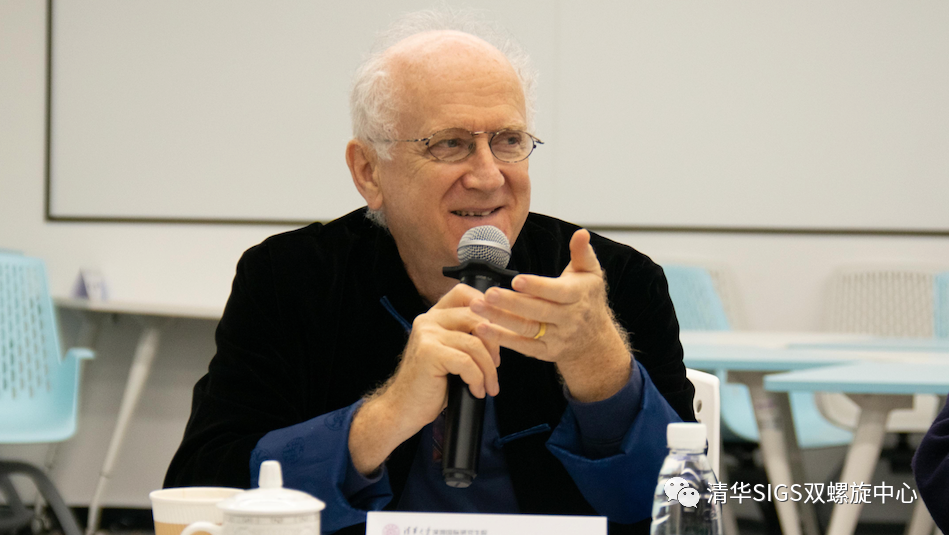
Professor Boris Yakobson from Rice University expressed his strong endorsement of CDH's strategic positioning and its prospects for future development. He also shared his expectations and recommendations for the center. Professor Yakobson advised that CDH could further amplify its international outreach by facilitating connections between young students and mentors with global standards through the center, an aspect he deemed highly appealing. Additionally, he proposed that CDH could establish collaborative partnerships with international institutions to bolster institutional exchanges.
As an emergent center, CDH is poised to leverage the collective strengths and resources of its affiliates to construct an international platform dedicated to pioneering "0-1" innovative education and interdisciplinary research. CDH extends a warm invitation to exceptional PIs to join our vibrant community.



